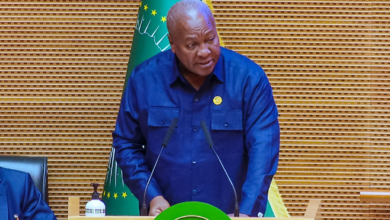The 6th edition of the International Exhibition of Information and Communication Technology (SITIC Africa) relocated in Abidjan allowed African digital actors to meet and express a common desire to develop an African approach to digital technology and therefore meet the challenge of transforming Africa’s economies.
By Issiaka N’Guessan in Abidjan
It was on the sidelines of the 6th edition of the International Exhibition of Information and Communication Technology (SITIC Africa) that the 12th report of the World Bank on the Ivorian economy was presented on June 1 in Abidjan. It therefore illustrated the stakes of the meeting: meet the digital challenge to accelerate the transformation of Africa’s economies.
A sector weighing 3% of the GDP in Côte d’Ivoire and providing nearly 3000 direct jobs
In this respect, the example of Côte d’Ivoire is interesting. According to the Global Association of Mobile Operators, in 2022, Côte d’Ivoire will have 9.6 million Internet users with a penetration rate of more than 34% 1 and this figure is expected to continue to grow rapidly, » says Coralie Gevers, Director of Operations at the World Bank in Abidjan. According to the Ivorian authorities, the telecommunication services sector generated a total turnover of about 1,139 billion CFA francs in 2021 (about US$1.8 billion), representing 3% of GDP and providing nearly 3,000 direct jobs and more than 100,000 indirect jobs. Good, but can do better, much better, say the experts.
This was the general idea of the meeting that saw the participation, in particular, of Tunisian and Ivorian companies and the West African sub-region. Though, the digital revolution experienced by the continent is evident, more synergies between the continent’s players can pool resources and therefore increase the impact.
« More efforts needed to bridge rural-urban digital divide »
For Côte d’Ivoire, which is positioned as the digital hub of the region seriously challenged by its neighbor Senegal in this regard, or Ghana, this must go through « additional efforts [which are] needed to bridge the rural-urban digital divide, » recommends Hermann Djédjé Yohoun. « Increasing support for startup incubators and accelerators and intensifying efforts to include more women in digital entrepreneurship » are part of the World Bank’s recommendations.
Jean Louis Menudier, Vice President of the CGECI recalls that the « process of digital transformation of the Ivorian economy and society is gradually unfolding, following a national strategy aimed at making Côte d’Ivoire, the digital hub of West Africa in the very near future. » He says: « the General Confederation of Enterprises of Côte d’Ivoire continues to multiply actions to accelerate the digital impact on the private sector through various initiatives, such as the barometer of digital maturity of companies that allows measuring the digital journey of companies and advocating solutions to overcome the pitfalls. »
« The stakes of digitalization are huge »
The local private sector is a stakeholder in this process, as Jean-Louis Menudier, General Manager of Uniwax says. However, he admits that « the challenges of digitalization are huge » and affect all sectors of activity.
The fact remains that this digitalization of the economy is at the heart of priorities of the State, represented by Amadou Coulibaly, Minister of Communication and Digital Economy, who insisted on « the digital development strategy of Côte d’Ivoire by 2025 adopted by the Council of Ministers on December 1, 2021. The strategy « aims to bundle all national initiatives together, to enable effective coordination of public action taken in all areas and sectors contributing to forge the digital development of Côte d’Ivoire. » Amadou Coulibaly said as such he is counting on « the ingenuity of digital actors to implement resilient and inclusive solutions to enable our country to continue its development » amid the shocks of the Ukrainian crisis and the COVID-19 pandemic.
The Ivorian players, both institutional and private, are also banking on synergies between the sector stakeholders in the continent, while the conference had an air of South-South cooperation. This is starting by strengthening relations between Tunisia and Côte d’Ivoire. « It’s been several years since we initiated this partnership, Ivorian and Tunisian actors have talks but it was important to establish a more structuring platform that can amplify the technological and economic relations between Tunisia and Côte d’Ivoire, expanded to all digital actors in African countries, « said the 1st Vice President of the Chamber of Commerce and Industry Tunisia-Côte d’Ivoire, Patrick Mbeng, president of the union of ICT operators in Côte d’Ivoire. He added that that the challenges of this partnership are: « first, our countries need to accelerate the digital transformation, we must accelerate the transformation pathway of our countries and this requires ecosystems that are ready and given the urgency of the needs, the extreme complexity of projects, it was important for us to establish this type of platform that will be a shortcut accelerator of transformation by building synergies between stakeholders, by co-producing and building solutions for tomorrow. »
« Raising African digital ecosystems to a global level because we are technology providers rather than technology consumers »
The second responds to the challenge « to raise African digital ecosystems to global level because we are technology providers rather than technology consumers, he further indicates. This cooperation between African countries reflects the common desire to « have development accelerators around the players and make win-win, » he says. Because «the digital competition is global, we must not look at local issues, we are able with the intelligence we have, the youth, to be solution providers globally,” he adds.
This is also the same for cooperation with Burkina Faso. « The level of penetration of ICTs in companies is not very advanced, » explains Marguerite Yaméogo, representative of the Chamber of Commerce and Industry of Burkina Faso, accompanied by about twenty business leaders in the field of information technology and telecommunications. “Without ICTs we can do nothing, we want innovation to be strengthened at this level.”






